
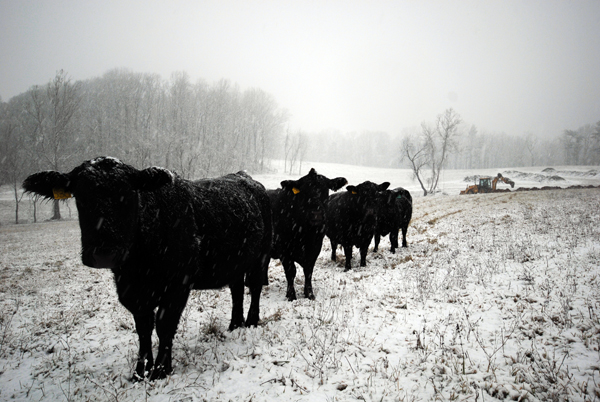

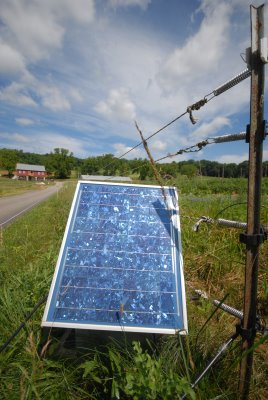
Sustainable Practices
Through developing creative approaches to the challenges of farming both organically and sustainably and then finding grants and cost sharing arrangements to implement the new approaches, Charlie Andersen has led a broad effort to take our organic farming beyond simply avoiding the use of chemical pesticides, herbicides, and fertilizers. If you would like more information about our sustainable practices, email Charlie at charlie@charlestownfarmcenter.org.
Organic farming is generally far more environmentally sustainable than conventional chemical farming except in two areas: soil conservation and fuel usage. A conventional farmer can apply herbicides, fertilize, and plant in a single pass where an organic farmer must make numerous passes to accomplish the same tasks and necessarily uses more fuel to do so. An organic farmer must turn over the soil to create a seedbed for planting thus leaving his fields vulnerable to erosion should it rain where a conventional farmer does not need to create a "clean" seedbed and can plant through plant debris and stubble which stabilize the soil and reduce erosion. Consequently, to improve sustainability we pay particular attention to energy and soil conservation.
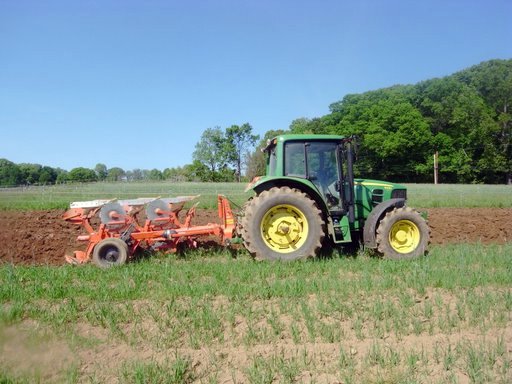
A kuhn 3 bottom roll-over plow recently purchased to reduce passes over the field in order to reduce soil compaction, fossil fuel usage, and labor inputs. The plow also enables us to turn over cover crops after they have grown to the maximum height.
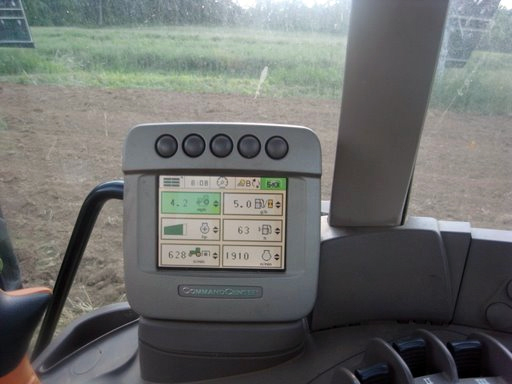
Tractor computer system used to optimize fuel consumption.
Thanks to a $34,500 Energy Harvest Grant awarded to Charlie Andersen by the Pennsylvania Department of Environmental Protection (PADEP) we now have a hoophouse (plastic covered greenhouse) which has become an integral part of Charlestown Farm operations used for season extension and winter vegetable production. The Grant was awarded to showcase a locally produced, carbon neutral, and renewable energy source - corn - which is used to heat the structure allowing us to avoid using large quantities of propane - the fossil fuel typically for heating such structures. We also obtained a PECO grant to help cover the cost of grid tied solar panels which provide a substantial portion of the farm’s electricity needs.
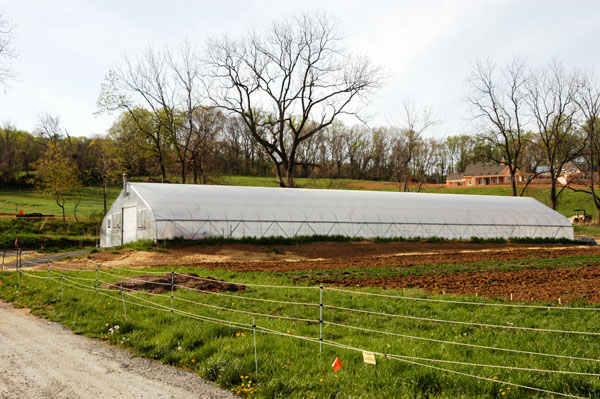
Corn heated solar powered hoophouse funded by PaDEP energy harvest grant.
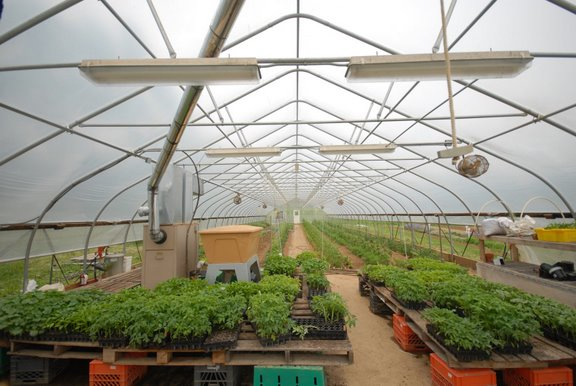
The interior of the hoophouse.
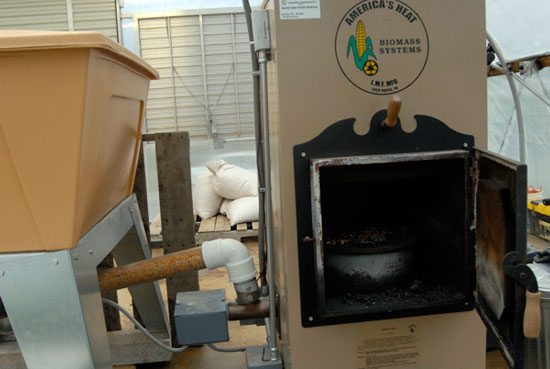
The corn furnace that heats the hoophouse.
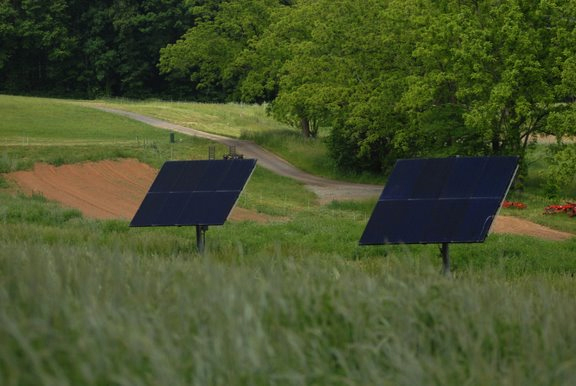
A 3.1 kilowatt grid-tied solar panel system funded by PECO.
Through a USDA funded project we have converted Broadwater Farm to a pastured livestock operation where cattle, sheep, and chickens are rotated among pasture around the farm. This approach allows us to avoid growing grain to feed the livestock thus avoiding burning fossil fuels and risking erosion in our farming operation. The project included the installation of a solar powered water system which pumps water into a cistern at a high point on the farm from which it gravity feeds to all pastures.
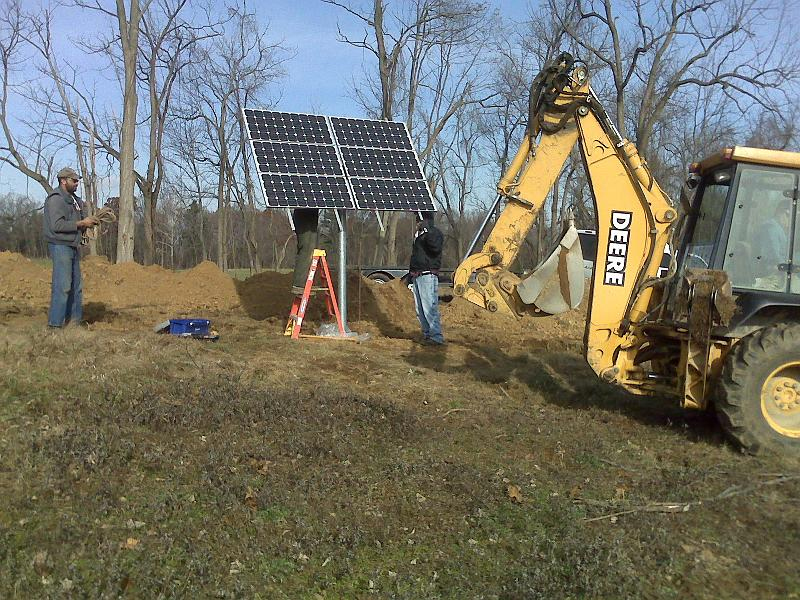
Installing the USDA funded solar powered water system.
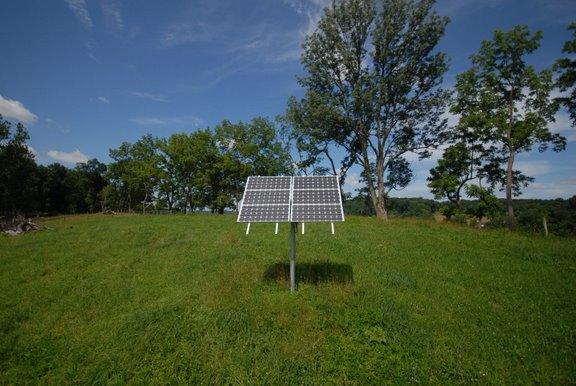
The solar powered water system after installation.
The rolling topography of the Farm makes it particularly susceptible to soil erosion. In fact, in excavating to install the Charleston Farm driveway, we encountered topsoil one foot deep from Charlestown Rd. along the 1000 feet of flat ground to the foot of the hillside where we discovered four to five feet of topsoil. Apparently, after years of plowing the hillside, erosion had removed much of the hillside's topsoil and placed it at the foot of the slope. To address this problem, we entered into a cost sharing arrangement in which the Natural Resource Conservation Service (formerly the Soil Conservation Service, the branch of the USDA formed in 1935 to address the ill-advised farming practices which caused the Dust Bowl) designed a system of permanent swales and diversionary berms and paid a portion of the cost of constructing the system. In addition, the NRCS laid out contour strips for our hillside plantings. The swales, berms and contour strips direct the flow of concentrated runoff to permanently planted pathways, and we now see little evidence of active erosion on the farm.
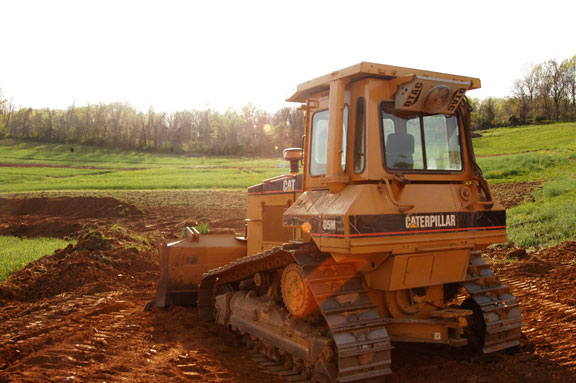
Natural Resource Conservation Service(NRCS) funded soil erosion control system including permanent grass swales, diversionary berms, and contour strips.
Our goal is to make our land better through our farming practices rather than slowly degrade it as farming whether organic or conventional typically does. In addition to conserving our soil through controlling erosion we work to enhance soil fertility sustainably though the use of cover crops. Whenever a field is not planted in a cash crop (i.e. a crop produced for eating) we plant it in a cover crop such as rye, clover, hairy vetch, oats, or buckwheat. These cover crops both stabilize the soil and produce green manures which add nitrogen and organic matter to the soil creating healthy soil which in turn creates healthy plants.
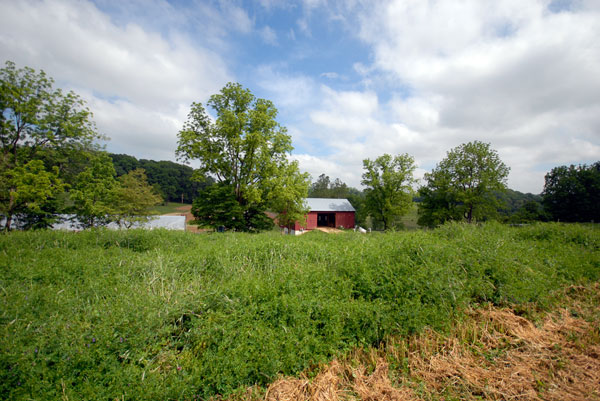 Rye, Hairy Vetch, and Crimson Clover cover crop mix planted to add fertility to the soil organically.
Rye, Hairy Vetch, and Crimson Clover cover crop mix planted to add fertility to the soil organically.
To achieve a more sustainable level of energy usage, we have experimented with no-till planting where we roll down and crimp cover crops which then become a mulch which retains moisture and controls weeds. We hope eventually to use this approach with all of our sweet corn production, allowing us to reduce by 80% the number of passes over the field and energy usage by eliminating the need both to control weeds through mechanical cultivation and to turn over the soil prior to planting.
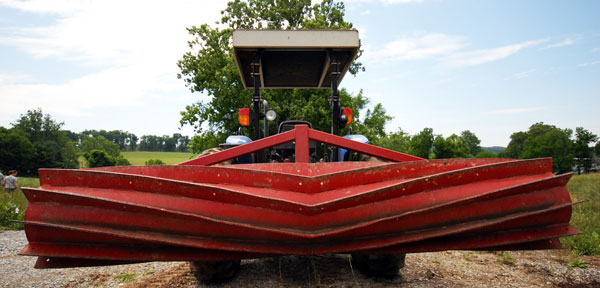 A crop crimper used to roll down covercrop mixes in preparation for no-till organic plantings.
A crop crimper used to roll down covercrop mixes in preparation for no-till organic plantings.
Insects can present a major problem to vegetable growers. We have developed a crop rotation plan to minimize pest pressure and allow recovery time between plant families. Some crops are particularly susceptible to specific pests. We cover these plants with a thin translucent fabric as a barrier to prevent the pests from attacking the plants. We have also successfully used parasitic insects to control pests such as European Corn Borer, Corn Earworm and Mexican Bean Beetles. No chemical insecticides or herbicides are used on the farm.
There is much controversy about using genetically modified seed. We question the wisdom of this practice. The balance of nature, upon which the whole earth depends, is delicate and vulnerable. We do not use any genetically modified seed at the farm. In fact, we grow many heirloom varieties, which have been preserved through generations.
The Farm
About
History
Internships & Jobs
Photo Album
Farm Happenings
Contact Us
A Full Plate
Charlestown Farm
Charlestown Farm Center
Phoenixville Farmers Market
home
610.933.0486 ~ bill@charlestownfarmcenter.org